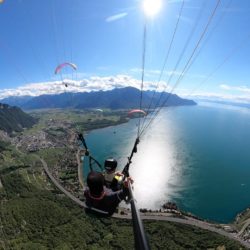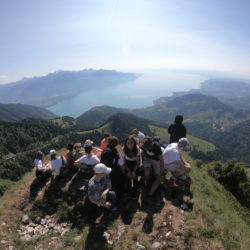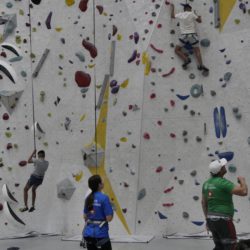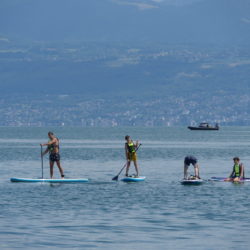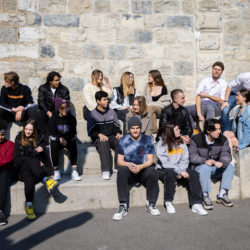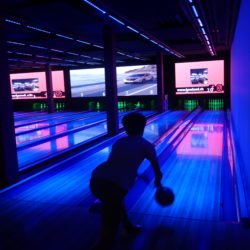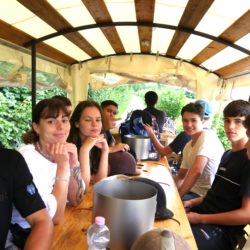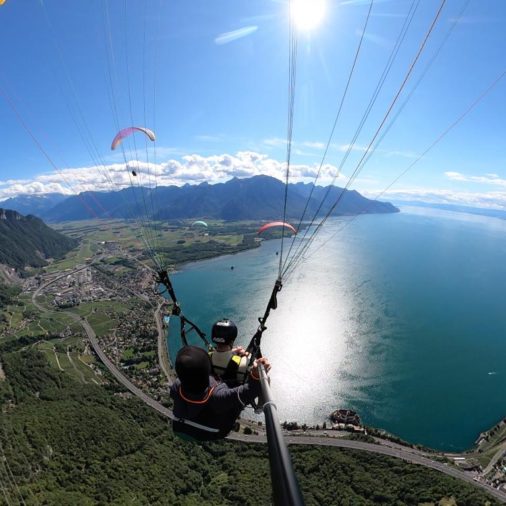
International Baccalaureat Diploma Programme
What is the IB Diploma Programme?
The IB Diploma is a 2-year university preparation for students.
It is an award that is offered around the world with varied and interesting subjects in disciplines that help students mature and be able to challenge accepted ideas using concepts and theories.
The IB Diploma is a programme that encourages independent thought at the same time as promoting community action and an understanding of global issues and interaction.
In short, an IB Diploma student is prepared for university life, academically, strong and mature enough to be independent while at the same time contributing to society.
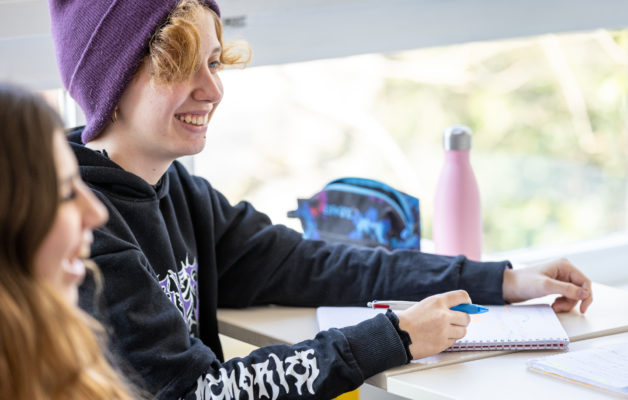
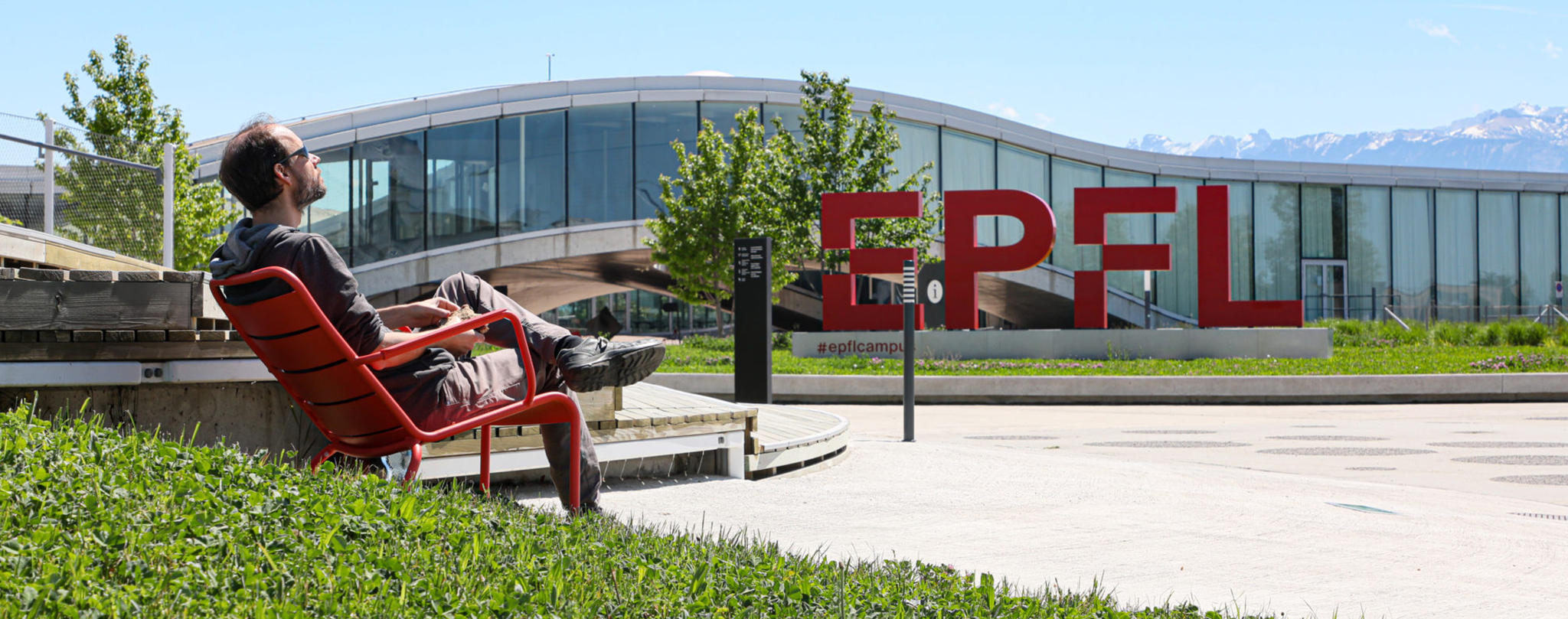
Advantages of the IB Diploma Programme
| The International Baccalaureate Diploma Programme is the ideal university preparation. Students develop a love of learning and begin to understand the world around them with academic courses designed to develop critical thinking.
This is important as they now start to become independent adults and need more than just an academic programme. IB students are not only taking an academic programme but developing skills that will prepare them for later lif As well as the academic courses, individual and team projects make students face real life issues and participate in finding solutions. |

IB Diploma Structure
6 subjects

The IB Diploma is structured to give students a wide range of academic exploration from six main groups. Students take one subject from groups 1-5 plus a final subject from group 6 or another subject from groups 1-5.
Studies in language and literature.
Language acquisition.
Individuals and societies.
Sciences.
Mathematics.
The arts
3 subjects are taken at Higher Level and 3 at Standard level. The final grades per subject awarded range from 1 (lowest) to 7 (highest). The final score is the total of all points awarded plus a maximum of 3 points for the 3 extra tasks on the IB Diploma. The pass grade is 24 and maximum is 42 -45 points
CAS, TOK, EE
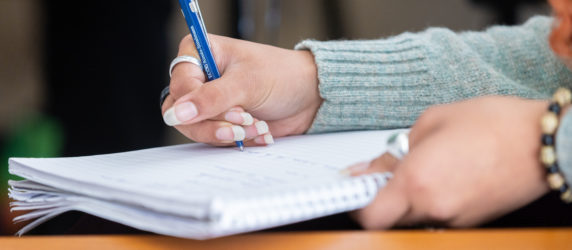
As well as the 6 subject groups, IB students take 3 modules designed to develop different academic and personal skills.
Extended Essay
The extended essay asks students to engage in independent research. They will develop cohesive arguments through studying and developing a question or topic relating to one of the IB Diploma subjects
Theory of knowledge
Theory of knowledge develops a coherent approach to learning that unifies the academic disciplines. Examining what students learn and how they learn.
Creativity, Actions, Service (CAS)
This involves students in a range of activities that develop a healthy lifestyle and attitude throughout their academic studies.
Subject areas and courses
This course introduces critical study and interpretation of written and spoken texts. Formats studied include non-literary works including films, advertisements or art and students are challenged to recognise themes and global issues within the works.
- English B (SL/HL)
- French B (SL/HL)
- Italian B (SL/HL)
- Spanish B (SL/HL)
- German B (SL/HL)
- Russian B (SL/HL)
- French Ab initio SL (for beginners)
- Spanish Ab initio SL (for beginners)
- German Ab initio SL (for beginners)
- Italian Ab initio SL (for beginners)
Economics
Business Management
History
Geography
Biology
Chemistry
Physics
Mathematics: Analysis and Approaches
Choose and extra subject from Groups 1 – 4
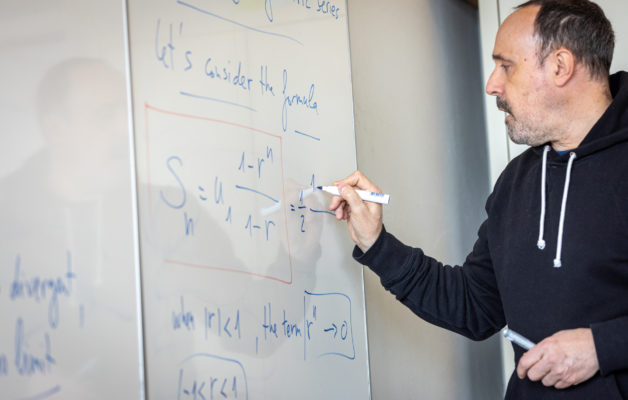
universities love the ib Diploma
The IB Diploma is highly respected in the academic world. It requires independent study and motivation. Students choose subjects from a range of academic disciplines and this gives them a well-rounded education and perspective which is respected in the university admissions process.
The range of subjects and participation in activities outside the classroom, such as sports and community service, go a long way to developing a sense of independence and maturity which prepares students for life at university.
| 1. Strong academic programme |
| 2. Wide range of subjects covered |
| 3. Importance placed on developing personal skills as well as academic knowledge |
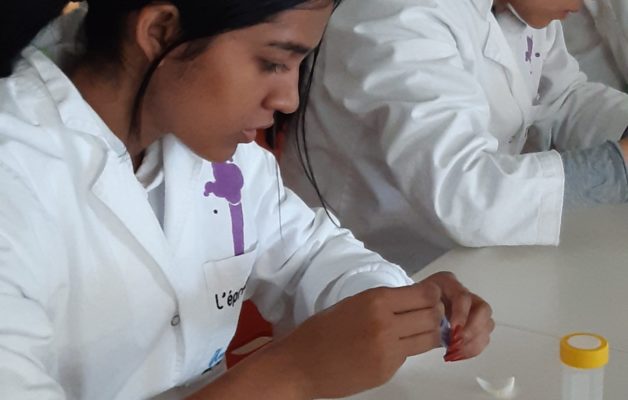
University & careers
What are you best suited to studying at university? What career would you prefer or want to avoid? Would you flourish at a large or small university?
With guidance and advice from the programme director and teachers, students choose the subjects which will give them the right opportunities when applying for university. Regular use of « Unifrog » software will help students to keep on track with their university search and applications.
Parents are also involved in this process and have access to the student software « Unifrog ».

STUDENTS MAKE A DIFFERENCE with the IB
Starting the Prep Year and continuing throughout the IB Diploma Programme, students undertake CAS projects. These range from global actions to local or class activities and each project aims to make students aware of how their actions affect others and the world around them.
Among the projects in the last year, Prep and IB students have taught English online to students in Peru, have helped to clean up the local area outside the Palais de Justice. Both have raised awareness of key issues affecting the world today, communication, cultural differences or the dangers of plastics and our continued use of them.
The next projects will be to raise money for a local charity and preparing and serving meals in a local foundation. These projects help to bring communities together and often are situations to which students would not be exposed.
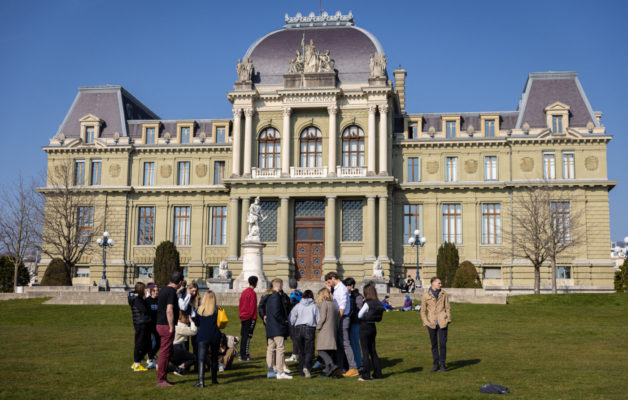
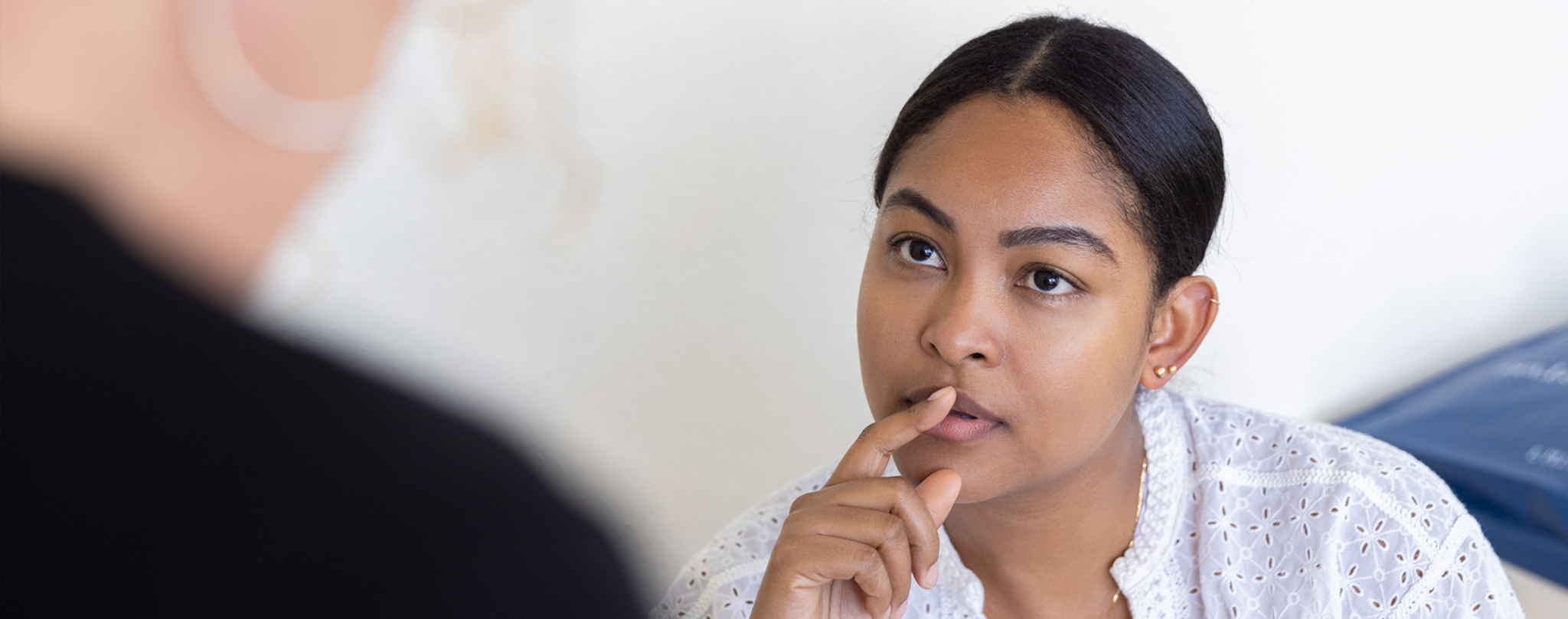
Student support at ecole Lemania
Teachers attach great importance to remaining available and flexible for students. They are approachable, friendly and aware that students at some stage may need more help or advice on academic or more personal matters. Feedback from students is important and we obtain this through discussion and an evaluation form to make sure that we are providing the support that student‘s need.
In August 2023 we introduced the, “PSHE”, Person, Health, Social, and Economic Education course for IB students. This aligns the IB principle of developing both academic knowledge and personal growth and address issues that are relevant to teenagers.
There are three core areas for development; health and well-being, relationships and living in the wider world and topics covered include physical and mental health, alcohol and drug culture, sex and relationships, education, economic well-being and careers.
PSHE provides a holistic learning approach, looks at how students can learn to cope with these issues and how each area is influenced by many interconnected factors, which in turn may be transferred to affecting a student’s academic development. Discussing the issues and the solutions available helps students to avoid some of the problems of being a young adult.
The director of the boarding house has direct, daily contact with all boarders and this is important to her. The time she spends with them, getting to know them and listening to what they say means that she is able to identify problems and offer help and advice.
As each student is different, the director of boarding will take into account each student’s intellectual, psychological, and emotional identity before working with the student to find a solution for an academic or personal issue. Always remembering that for young girls and boys in their mid-teens, studies are not the only thing on their list of concerns.
Giovanna Crisante as programme director has this incredible ability to be kind, caring, and always ready to listen to students. She has a radar for what they need and is ready to help when they are stuck!
She is also open-minded and believes in embracing different ideas, perspectives, and cultures in the classroom and in life. This helps to get students thinking creatively, challenging norms and exploring new thins.
As programme director she is also a guide for students on their journey towards success.
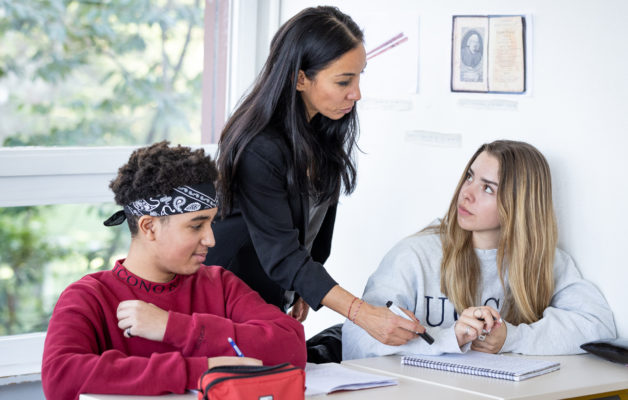
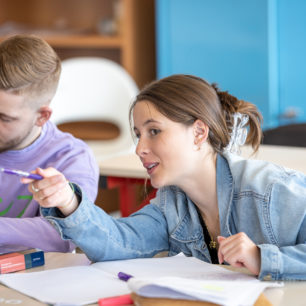
Contact us now for more information
TUITION AND BOARDING FEES 2025
| Prep Year | IB Diploma | Prep Year | IB Diploma | |
| Day students | ||||
| Tuition and books only | 28’00 | 36’000 | ||
| Boarding Fees (Room & full board) | 7 day – double room | 7 day – single room | 5 day – double | 5 day single |
| Standard double room | 39’220 | 66’230 | 28’490 | 47’730 |
| Comfort double room | 49’580 | 85’470 | 33’250 | 60’310 |
| Comfort + double room | 58’830 | 105’080 | 49’920 | 74’000 |
| SINGLE ROOMS ARE AVAILABLE UPON REQUEST | ||||
Important dates 2024/25
| February holiday | From Friday February 14, 2025 evening | To Monday February 24, 2025 |
| Easter holiday | From Friday April 11, 2025 evening | To Monday April 26, 2025 |
| Academic Year ends | Friday June 27, 2025 | |
| Boarding students must return the day before classes start after each holiday |
Important dates 2025/26
| Arrival day for boarding students | Sunday August 24, 2025 | |
| Term begins | Monday August 25, 2025 | |
| Autumn Break | From Friday October 10, 2025, evening | To Monday, October 27, 2025 |
| Christmas holiday | Friday December 19, 2025, evening | To Monday, January 5, 2026 |
| February holiday | From Friday February 13, 2026, evening | To Monday February 23, 2026 |
| Easter holiday | From Friday April 2, 2026, evening | To Monday April 20, 2026 |
| Academic Year ends | Friday June 26, 2026 | |
| Boarding students must return the day before classes start after each holiday |
lausanne lifestyle

